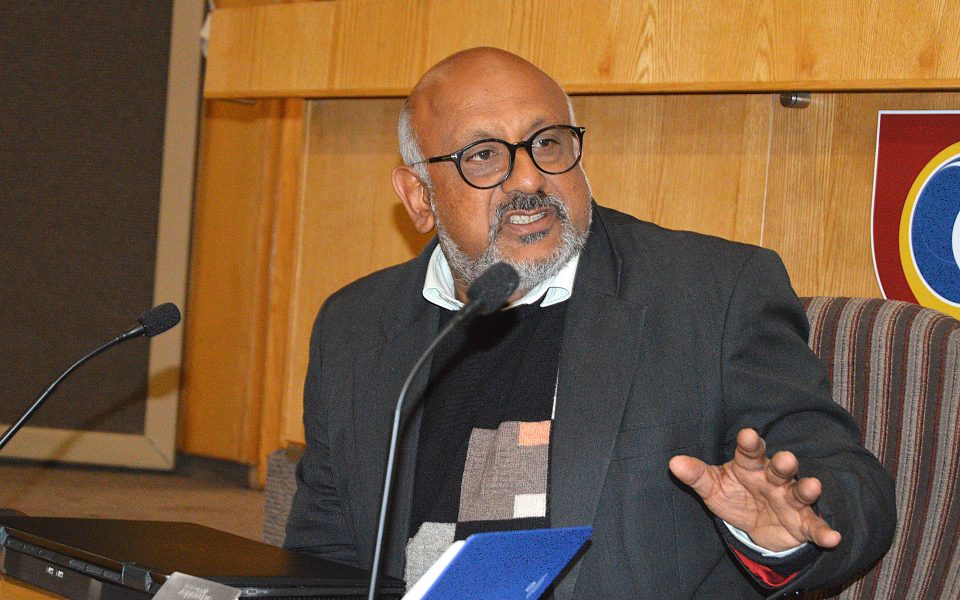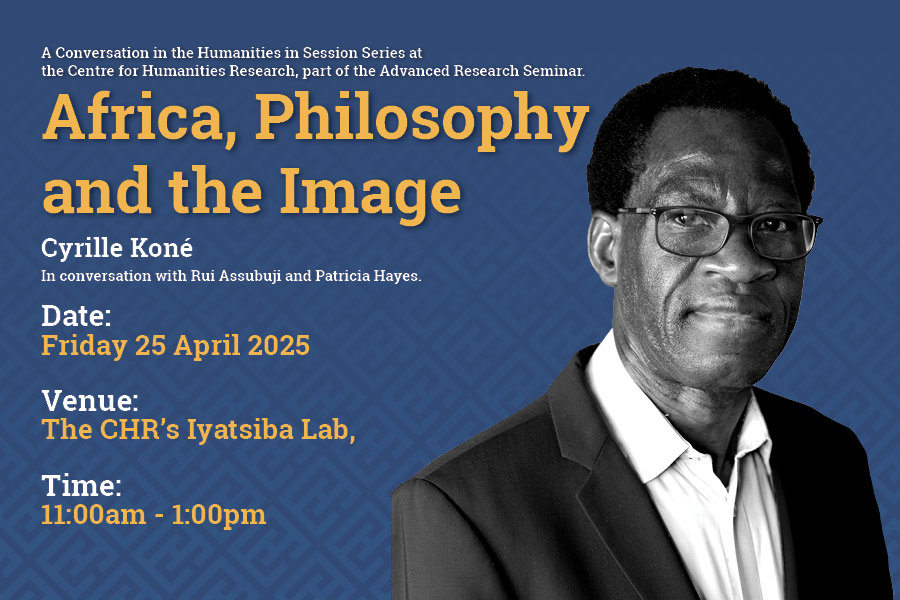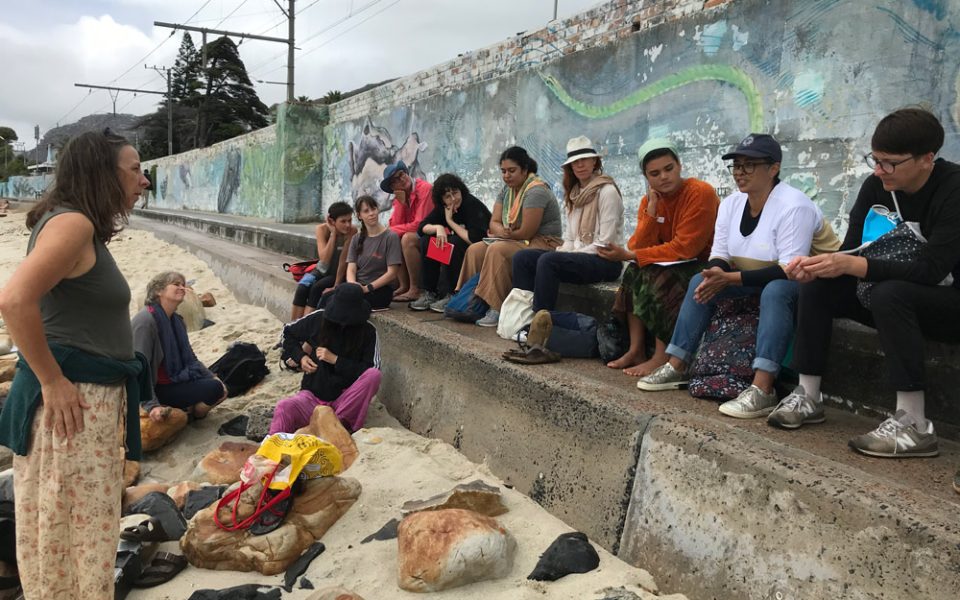Postdoctoral, PhD, MA and Honours Awards Announcement for 2017

The closing date for applications and referee letters has been extended till 15 November 2016
DST-NRF Flagship on Critical Thought in African Humanities, Centre for Humanities Research, University of the Western Cape, Postdoctoral, PhD, MA and Honors Awards Announcement for 2017
Under the auspices of the DST-NRF Flagship on Critical Thought in African Humanities and the SARChI Chair in Visual History and Theory, the Centre for Humanities Research (CHR) at the University of the Western Cape (UWC) is pleased to announce the 2017 Fellowship competition for Post-doctoral, PhD, MA and Honors awards. We invite emerging scholars in the humanities and interpretive social sciences to join a team of scholars and artists who, in conversation and collaboration, continue to contribute significantly to redefining the study of the humanities and social sciences locally and internationally. For 2017, prospective candidates will be selected in accordance with the research priorities of the National Flagship Project in the Humanities funded through the National Research Foundation and the Andrew W. Mellon Foundation. These include interests in the following broad themes: aesthetic education; the human and technology; citizenship, migration and political violence; political theory and philosophy; visual history and theory; performance and kinetic objects; and museum and heritage studies.
Aesthetic Education and the Becoming Technical of the Human: What are the outlines of an aesthetic education, constitutive of an “aesthetic field,” which may open onto other understandings of the concept of the post-apartheid and the postcolonial, both in and beyond South Africa? What are the shifting dynamics of the relationship between the human and technology, between technogenesis and race, that impinge on the debate on aesthetic education? Research projects that explore these questions in relation to arts practice and humanities scholarship, specifically in relation to film, music and theatrical forms, are particularly encouraged.
Kinetic Objects: In 2017 the CHR will establish a Laboratory of Kinetic Objects and Puppetry Arts. The laboratory builds on a six-year study program on aesthetics in Africa and Europe, the successes of the existing Artists in Residence program at the CHR, a seven-year partnership with Handspring Puppet Company, and inter-institutional partnerships connecting artists and humanities scholars. It brings together an experiment in public arts practice and humanities scholarship on the question of the practice of post-apartheid freedom. At the core of our laboratory is the question of how to think of aesthetics and the domains of artistic creation as sites to read and comprehend the dynamics of change in post-apartheid South Africa. We encourage applications whose research projects explore how, and to what ends, artistic practices such as object theatre and puppetry arts might address themes such as truth and reconciliation, gender and identity formation, subject-object relations and legacies of the past so as to bring another perspective on contemporary predicaments in South Africa and Africa more generally.
Migrating Violence: The popular nature of xenophobia, the violence involved in labor disputes on the mines, and the violence of citizenship regarding who belongs, are vivid reminders of how migrancy continues to pose a challenge for critical thought, and provides insights into the nature of political practice and democratic promise in Africa. Through the figure of the “migrant” we wish to understand how instances of violence in South Africa remain embedded in the legacies of colonial citizenship. We invite applications that address themselves to dilemmas of citizenship in postcolonial Africa, from a Southern African vantage point.
Political Theory and Philosophy: In order to encourage new thinking that speaks to the predicaments of our times, we invite proposals from candidates in philosophy and political theory working on questions of Citizenship and Justice. These two concepts have a capacious and canonical presence in political philosophy, and in our understandings of both the classical and modern worlds. We encourage reflection on Citizenship and Justice in ways that seek to understand these in the wake of the plurality of sources of knowledge, and the histories and genealogies of these concepts immersed in the concrete politics of knowledge, power and political practices that have constituted our modernity. What might it mean then to teach and research political theory and political philosophy in an African university in the contemporary world?
Visual History and Theory: In addition to the awards made through the Andrew W. Mellon Foundation and the DST-NRF Flagship, the CHR is also home to the National Research Foundation SARChI Chair in Visual History and Theory. The Chair in Visual History and Theory promotes innovative research that brings images into larger questions of history and the humanities, and supports new critical directions that engage with visual archives and contemporary theory in the arts and media. Fellowships are intended to promote research and build a postgraduate community in this field.
Museum and Heritage Studies: The African Program in Museum and Heritage Studies (APMHS), which has been offered since 1988, is the leading training and education program in the field for professionals and scholars in Africa. It is offered at the level of Postgraduate Diploma and as a MA (History) with a specialization in museum and heritage studies. What makes the APMHS unique is that it emphasizes a conceptual understanding of the terrain of public culture, of the challenges of transformation and of the work of representation. The study of museums and the worlds of heritage is approached and conceptualized in a manner that consistently, critically and practically engages with and challenges the dominant ways in which heritage is presented.
Fellowship awards
The value of these prestigious fellowships will be determined by guidelines set by the NRF and Andrew W. Mellon Foundation. In 2017, fellowships will be offered at Postdoctoral, PhD, MA and Honors levels in disciplines associated with the humanities. The awards cover a monthly stipend, travel costs, accommodation and basic research expenses. The fellowship cannot be held concurrently with other fellowships without permission of the Director of the CHR and all recipients of grants will be required to fulfill the obligations of the program.
Successful candidates will be required to be present on campus during the relevant academic semesters unless granted leave by the fellowship board. All Postdoctoral fellows will be required to produce at least one peer-reviewed journal article, which when published should contain appropriate acknowledgement of UWC. Postdoctoral Fellows are also required to show substantial progress towards publication of a monograph. The CHR together with the History Department hosts a weekly seminar series where prospective candidates can present their research and solicit valuable feedback from an interdisciplinary forum of academic staff and graduate students. The CHR also convenes regular reading groups, an annual Winter School and colloquia, in which fellows are required to actively participate. The center provides office accommodation and access to the UWC-Robben Island Museum Mayibuye Archive collection.
Application process
All applications should include a CV and a letter of motivation on why the Flagship is the best fit for the study (candidates should identify the research theme best suited to their respective research interests – for more information on the research platforms in the Flagship on Critical Thought in African Humanities see http://www.chrflagship.uwc.ac.za/centre-for-humanities-research/research-platforms/). Applicants should provide an academic writing sample or published journal article (MA candidates should submit a chapter from an Honors long paper), an academic transcript, and three independent academic references. Referee reports should be sent directly to the CHR. Postdoctoral, PhD and MA applicants should submit a three-page description of their research project and a plan of work. Applicants should also provide a brief statement on how their research intervenes in the larger national and international debates on the humanities, especially, albeit not exclusively, as these relate to advancing its study in Africa. All PhD, MA and Honors applicants (including applicants for Museum and Heritage Studies) must name the academic department beyond the CHR through which the degree will be pursued. In order to be considered for the fellowship, applicants must have made an independent application to the relevant academic department in which the degree will be conferred (https://www.uwc.ac.za/Students/Admin/Pages/Apply-Online.aspx). Selections are made by a committee comprising affiliated faculty with the CHR. The selection process will prioritize the applications of South Africans of historically disadvantaged groups. The final decision rests with the Advisory Board of the CHR, which is chaired by the Dean of the Faculty of Arts. The Selection Committee may interview applicants.
Applications must be posted to Ms. Lameez Lalkhen, Centre for Humanities Research, University of the Western Cape, Private Bag X17, Bellville, 7535. No electronic applications will be accepted and incomplete applications will not be reviewed. Enquiries and referees’ letters may be electronically sent to llalkhen@uwc.ac.za. Telephonic enquiries may be directed to +27(0)21-959-3162. For further information on requirements for Museum and Heritage Studies Fellowship please contact Luvuyo Ndzuzo (LuvuyoN@robben-island.org.za). Applications and referee letters must reach the Selection Panel on or before 15 November 2016.




